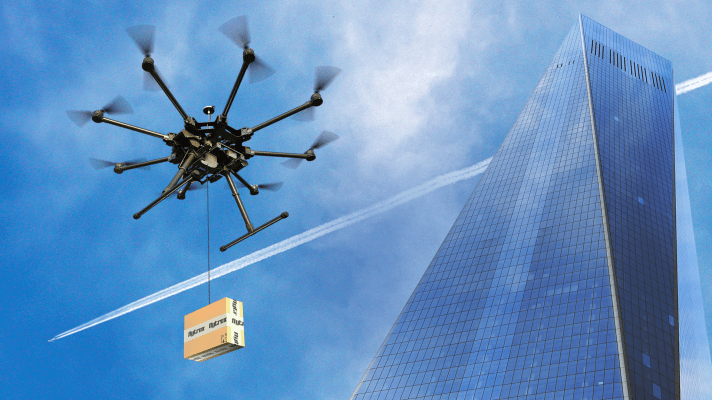When Amazon’s Jeff Bezos first talked about delivery by drones back in 2013, I scoffed that it was nothing more than PR fluff. The kind of future-gazing publicly listed companies do to help keep the share price afloat and reassure investors that they remain relevant.
But fast-forward three years and despite my early skepticism, I’m becoming increasingly convinced that commercial drone delivery will soon become a thing. Enter Israel’s Flytrex, which has just raised $3 million in funding to build out its drone delivery solution.
Leading the round are Swiss-based Armada VC, owned by Daniel Aegerter, as well as private angel investors Daniel Gutenberg and Joey Low. A few unnamed private angel investors also participated.
In a call, Flytrex founder and CEO Yariv Bash told me the startup, which began life creating a ‘black box’-style flight recorder and cloud service to track your personal drone, is currently working on a number of projects in countries where regulators have woken up and are embracing the fact that drone delivery is coming.
What’s interesting, he says, is that different regulators have different concerns, from traffic control to consumer safety, all of which need to be addressed.
I’m told that current Flytrex projects range from electronic parts delivery in Europe to life saving drug delivery in Africa. One project that has been made public is parcel delivery in partnership with UkrPoshta, Ukraine’s national postal service.
“We believe drone deliveries to be a $100B opportunity in the years to come, this is not another app company with short term exit strategy, but a disruptive company with long term goal of changing the way consumers behave – complementing the instant online shopping experience all the way to the customer door step.”, says Bash in a statement.
Flytrex’s platform is aimed at delivery companies or large retailers that want in on the drone delivery action. It provides a cloud solution for the tracking and management of delivery drones, but the company is also developing drone hardware tailored for point-to-point or point-to-area delivery.
For example, Bash says he doesn’t envision delivery drones ever landing in a consumer’s back yard, garden or driveway, as this would be too dangerous. Instead, a Flytrex drone would remain in the sky and at a safe height, but on-demand will lower the package via cables (see image above).
Air traffic control/congestion will also need to be addressed in the future. Though, in typical startup fashion, Bash says this will be a “nice problem to have,” since it will mean drone delivery has finally become a thing.
